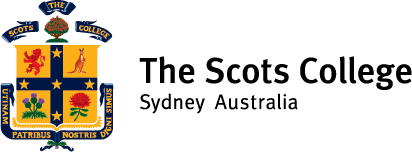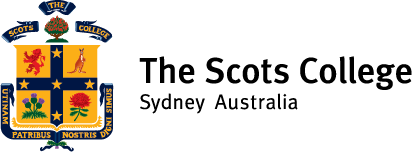In a previous article, Your Son’s Future Starts Here, we shared a few reasons why the current education system may not be best suited to preparing boys for life after school, and why schools – like Scots – need to continue to reinvent the educational experience. At The Scots College, we asked ourselves: How have we been helping our staff reinvent education within the College and best prepare our students for the future?
Philosophy in Action
As with all good design, we start with understanding where we are and where we want to go. When we have thought about what is different in educating for boys in our context, we have drawn on our distinctive philosophy of education, Brave Hearts Bold Minds. Central to this is the motif of a ‘quest’, a challenge, a calling for boys to go on a journey – realising the potential that lies within and replicating the good they encounter without.
As they move through the school, their experience is framed by key themes like Mastery, Adventure, and Courage and Conviction. One of the keys to a successful curriculum for boys is ‘coherence’: does this make sense as a story that is worth pursuing, or is this just a game that I have to play?
We have worked extensively, and inductively, with our staff to flesh out what sort of graduate outcomes we want to see at each stage of this journey. What exactly should we look to see by way of ‘Adventure’ for a Year 9 boy? What, then, should we decide to emphasise in our curriculum and pedagogy to give coherence around those big themes? Doing this helps us avoid presenting schooling to boys as primarily about subjects and disciplines and grades, but more about pursuing noble ideas and virtues. Staff resources such as our unique Brave Hearts Bold Minds Staff Guide, an interactive website that shows what we aim to achieve with boys across each of our graduate qualities and each phase of a boy’s journey from Pre-Kindergarten through to Year 12, as well as research-informed advice on how to best make this happen in the classroom (and in the rehearsal room and on the playing field, for that matter). And, this year, we launched the Scots Design Cycle, helping staff apply a design thinking mindset to the way they translate those outcomes into rigorous and engaging learning experiences.
The engine room for this great work by so many staff is The Scots College Research Office, established in 2012 by The Scots College’s Principal, Dr Ian PM Lambert. We aim to support our leaders and teachers to reinvent education through our Brave Hearts Bold Minds philosophy, and do so not just for Scots, but for ‘the common weal’ – the good of all. Here are three examples of this in action:
Teaching for Character Program
Since 2019, all our staff has been engaged in what we call the Teaching for Character Program as our main professional learning activity across the College. This trains and equips teachers in their teams to redesign an aspect of their teaching to more deliberately cultivate character as defined in our graduate profile. Designed to be an action research cycle, it has seen some exciting developments in both what boys learn and how teachers frame their learning around character formation. For example, in 2021 the Drama and Media team in the Senior School redesigned their unit on ‘Understanding Comedy’ to help boys think about how humour (one of our ‘Leadership Through Teams’ civic character qualities) can be used to build up and bring together, rather than to cut down and divide. In 2020 the Learning Enrichment team in the Preparatory School worked with boys to develop their own language around a ‘growth mindset’ (reflecting our performance character quality of ‘The Quest for Excellence through Personal Growth’). Watch Preparatory School Teacher, Ms Holly Davison and students describe their journey. Hear Head of Christian Studies, Reverend Sam Anderson, reflect on the ‘buzz’ that his team experienced as they wrestled with the purpose and form of their teaching to better achieve our purpose as Scots educators.
Innovation and Design Co-Curricular Program
In 2020, we designed and piloted a year-long co-curricular course for Year 10 boys focused on design and innovation. Boys worked with internal staff, and visiting academics, to learn the design thinking process and tackle a series of real problems, such as waste reduction, or assessment redesign for student engagement. The program was carefully designed and evaluated to see how well it achieved its outcomes. One of the best learnings was that when we create curricula from scratch – outside the normal timetable box – students and teachers can see the normal curriculum with fresh eyes and bring new ways of thinking to it.
Applied Entrepreneurship Program
Perhaps our most interesting experiment in curriculum redesign has been the creation of a whole new parallel program for our Years 11 and 12 students. Established in 2016, the Applied Entrepreneurship Program seeks to shape the student experience around the changing nature of work. With perhaps 17 different jobs over five careers in a lifetime, they need ‘a new work mindset’ (Foundation for Young Australians, www.fya.org.au, 2017).
Rather than think in subjects, the Applied Entrepreneurship Program focuses on five key charges derived from the literature on what future graduates need – leadership, strategy, analysis, influence and problem solving. While students do receive a normal Higher School Certificate, they also obtain a range of industry-oriented micro-credentials and experiences that they would never get in a normal curriculum. They learn, not in classes and subjects but, in three modes – the workshop blended classroom, the Scots laboratory where they prototype new ventures, and a self-paced My Mastery online learning program. And through a personalised approach, they are graduating with a much better sense of their identity, aspirations and abilities, as well as work and university pathways into future industries.
If you would like to find out more about these, and other, projects we encourage you to access The Scots College Research Office website.
Dr Hugh Chilton
Director of Research and Professional Learning






